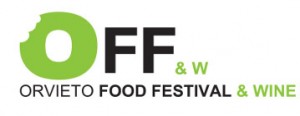Upcoming Open Source Webinars: BlackDuck, Scate, Zenoss
Learn About Open Source SEO Software – If you would like to learn about how to use open source SEO software.
Every Tuesday, 2:00 pm EST. (More …)
Learn About Open Source SEO Software – If you would like to learn about how to use open source SEO software.
Every Tuesday, 2:00 pm EST. (More …)
 Recently a customer asked a comparison between Nagios Core to Icinga Core, and we got granted the opportunity to make these findings available to the general public through SOS Open Source.
Recently a customer asked a comparison between Nagios Core to Icinga Core, and we got granted the opportunity to make these findings available to the general public through SOS Open Source.
Some background information on Nagios and Icinga. Nagios – whose name is a recursive acronym (“Nagios Ain’t Gonna Insist On Sainthood”) ironically refers to the original name NetSaint changed to avoid trademark troubles – is among the most popular open source network management tools and application. Nagios has been designed and developed by Ethan Galstad over the last 11 years. Recently Ethan started to empower other developers, a transition that is slowly happening. Icinga is a Nagios fork born over one year ago, which aim was and is to make it a community-led project, probably not devoid of business logic.
Read the full SOS Open Source report at SOS Open Source.
The “community” behind Icinga is the company Netways. Their business model was to hijack the Nagios brand until Ethan Galstad told them to stop selling Nagios as if it were their own.
The Italian chamber of deputies on the 22th of September 2010 approved unanimously a motion to move on with the adoption of open standards in order to make office suite migrations a reality.
The original motion, made by Carlo Emanuele Trappolino who actually pointed out that a migration process was started back in 2007, was calling for a fast adoption, but the final text doesn’t specify any timing constraint.
OTRS OnDemand: The Basics of Setup, Configuration and Use – OTRS OnDemand is a complete services management suite used by organizations around the world. Join us for a live interactive webinar to learn best practices for setting up, configuring and using your OnDemand application to manage virtually any business process.
Tuesday, November 30, 2010 7:00 pm (CET) (More …)
The 451 Group kindly provided me with a copy of their latest report “Control & Community“, enlisting facts, figures and findings around open source communities and how to interact with them.
Packt has announced that PrestaShop has won the Open Source E-Commerce Applications category. Being a jury member I used SOS Open Source tools to learn more about all finalists - namely Magento, nopCommerce, OpenCart, PrestaShop, TomatoCart – and I want to share here some findings.
I hope that next year we can be taken into consideration with VirtueMart since we’re completely rebuilding it with an eye for developers and an eye to the ease of use 🙂
Commercial Open Source blog is yet another year older, and it is time to zoom back once more and look at things happened during the fourth year of its live.
SOS Open Source has been my primary focus over the last year. I have been using my methodology to help customers, make available reports for vendors and also to qualify and select open source e-commerce applications. Stay tuned for more reports, the very next will be around open source monitoring.
Conferencing. Over the last year I have been keynoting at Novell and Red Hat events, organizing a series of events around open source for IBM (more to come), chairing the Analysts session at OWF, as well as giving speeches and managing round-tables discussions at cloud computing events.
EU-funded open source projects. Having been invited by the EU to bring my perspective around EU-funded open source projects’ sustainability, I started to share tips and hints about online dissemination. Of course I didn’t stop to look at existing projects, and I look forward to share more findings about some of them.
Last but not least I wish to thank my webmaster Matteo Ionescu for his great job.
“The Unsaid Document Foundation” series is disappointingly considered “fud” from LibreOffice developers, and Michael Meeks saying (again) that I made some good points, calls me a non-developer, probably to infer that I am not the best person to make programming suggestions.
Commercial open source blog readers care little to know about my computer science degree, or how much code I have been writing on a PDP-11 system. Therefore I would rather spend the rest of this blog entry sharing more thoughts about LibreOffice future.
Volunteers working on easy-hacks will hardly turn into code hackers able to make this kind of changes. Full-time developers are needed, especially now that LibreOffice is meant to be something different.
This shows a lack of understanding of how free and open-source software works. How to do community-building and create a sustainable environment.
Did you ever get involved deeply into the development of an open-source project?
Brad, I am regularly helping companies and organizations to interact with open source communities, either with commensalistic or symbiotic approaches.
What I learned is that every project has its own characteristics, and things like code modularity, comments, etc strongly affect participation.
Train someone to run a grep command it is a start, but I it will hardly make him or her able to write *Office code. Time will tell if those 90 new contributors will ever become real *office programmers.
 Orvieto Food Festival – a gourmet happening that will be held from 18-21 November in Orvieto, with wine, food, culture and fair trade initiatives – invited me to give a speech about how to mix proprietary and open source.
Orvieto Food Festival – a gourmet happening that will be held from 18-21 November in Orvieto, with wine, food, culture and fair trade initiatives – invited me to give a speech about how to mix proprietary and open source.
JBoss Integration Webinar Series: Increase Returns on Existing Investments – a four part curriculum designed to deliver a practical understanding of how to reduce costs, streamline business processes, manage your data, and empower business analysts to realize the promise of SOA.
October 27, 2010, 9:00 am EST
Reply